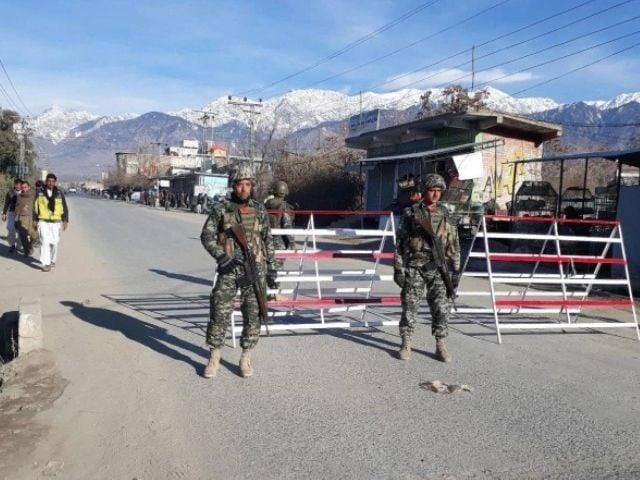The Khyber Pakhtunkhwa (KP) government has emphasized strict compliance with the Kurram Peace Agreement, warning that armed aggression will be prosecuted as terrorism.
KP Information Advisor Advocate Muhammad Ali Saif stated that security and travel arrangements are being finalized for a convoy scheduled to move on Saturday.
He highlighted that the decisions of the Apex Committee include the disarmament of the region and the dismantling of all bunkers.
Under the agreement, both sides have 15 days to design a coordinated disarmament plan. The public display or use of weapons, as well as fundraising for the purchase of weapons, has been strictly prohibited.
“All existing bunkers in the area must be demolished within a month,” Saif said, adding that construction of new bunkers is prohibited under the agreement.
He reiterated that any group that engages in militancy or violates the agreement will face swift action and will be classified as terrorist.
The peace agreement aims to restore stability in the region, with measures ensuring that both sides adhere to the terms to avoid future conflicts.
Kurram Peace Pact: 400 recruits, FC units to be deployed
The Kurram peace agreement, aimed at resolving a century-old conflict in the region, has reportedly led to the recruitment of 400 new troops and the establishment of additional security measures.
As part of the deal, new checkpoints will be set up and two FC platoons will be deployed to beef up security along major roads in the region, Express News reported.
Bureaucratic officials said the new security personnel will focus on safeguarding the Kurram region, which has experienced significant instability.
The move is expected to improve security and facilitate the implementation of the peace agreement.
Barrister Saif, special advisor to the Chief Minister of Khyber Pakhtunkhwa (KP), hailed the successful resolution of the Kurram conflict, which spanned over 100 years.
He mentioned that more than 50 sessions of the grand jirga were held, reflecting the deep commitment of all parties involved.
The peace agreement also includes the immediate release of compensation to those affected by violence in the region. According to Saif, the survey of the affected villages has been completed and the disbursement of funds will begin shortly.
The provincial government had already taken proactive measures to address the humanitarian crisis during the conflict.
In response to the road closures, the government provided air support, delivered more than 15 tons of medical supplies, and evacuated more than 700 people by helicopter. Food assistance was also provided at reduced prices and non-food items were distributed through relief agencies.
After the signing of the agreement, the provincial advisor highlighted that the demands for opening roads and peace had been met and that with the recruitment of 400 new agents the security situation would be further stabilized.




